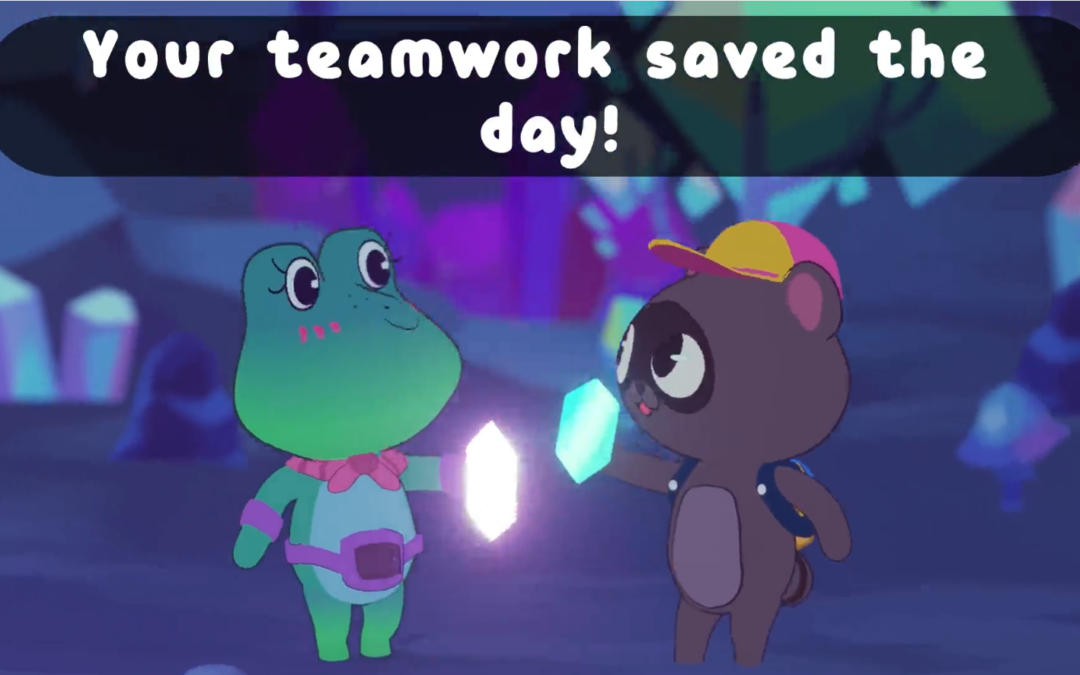Research and Planning
The first stage of writing always involves research and outlining. For example: In a third grade video about cyberbullying, it’s important to recognize in which contexts cyberbullying occurs. Using peer-reviewed research is essential in creating a pedagogically sound piece of writing, so I would use a database to locate research about elementary school-aged students and their experiences online. In this case, the data suggests video games are a major culprit for online harassment. I incorporate that research so the students can feel connected to a relevant story.
The objectives that dictate a script are based on a variety of technology and core curriculum standards. These help us decide on a set of vocabulary words and important concepts to include. From there, my duty is to convey them in a clear, engaging and effective manner. I create an outline and list of objectives, and then the writing begins.
Writing
The first draft can take anywhere from a few hours to a few days. It depends on the length of the script, how many objectives and vocabulary words there are, and how familiar I am with the concepts and themes. Unfortunately, writer’s block can rear its head and affect timing as well. However, I am lucky to work with such a uniquely creative team who helps me overcome these hurdles when they pop up.
I’m not the only one who gets to see a script before it is turned into a video. My teammates’ collaboration is vital to the success of a script.
Review
The content team generally reviews scripts two or three times through meetings and once through an asynchronous form. This process includes stakeholder participants who contribute vital pedagogical feedback. Working with former teachers and administrators helps me ensure my story will truly hit the mark—for teachers, students and parents alike. While reviewing, we also discuss what sort of practices and modules we could create based on the content.
I also utilize online feedback, gathering commentary from a variety of parents and teachers throughout the country. They each respond to an assortment of questions that have been selected over time to curate the most useful feedback. Parents also read the script to their children, which allows me to hear honest opinions from my core audience.
Some questions include “Were the learning objectives met through the script?” and “Would these characters appeal to a diverse set of students from different backgrounds and experiences?” These user tests are reviewed as a team, where any discrepancies or concerns can be addressed. When my script is done, it moves on to its next phases of life: Voice-over recording, visual assets and, eventually, an ideal Learning.com video.
Don’t Forget to Have Fun
The most important aspect of learning is fun. We retain information better when it is tied to interesting stories, striking sensations and authentic emotion. Keeping the attention of children is important but often difficult, so a lot of effort goes into fun rhymes and fascinating dilemmas. Our animator and illustrator play a fundamental role in bringing these stories to life, adding dazzling colors and silly scenes that even make me laugh. If learning can be fun, so can the process of creating learning materials—and here, it absolutely is.
Want to join Learning.com’s team of curriculum designers? Check out our Careers page to see open positions!

Natasha Vartanian
Script Writer
Natasha is an educational script writer with a passion for writing, animals and education. She brings creativity and spirit to everything the does for Learning.com. On the side, she is poet and enjoys satire and horror.
Further Reading
Examples of Abstraction in Everyday Life: How Students Already Use Computational Thinking
Computational thinking, though often perceived as a concept limited to technology or coding, is a valuable problem-solving skill that students...
Understanding Abstraction: Everyday Examples and The Role of Abstraction in Computational Thinking
Abstraction is an essential concept in computational thinking and problem solving, but it’s often one of the more challenging aspects to grasp. This...
7 Examples of Algorithms in Everyday Life for Students
For students new to coding, the process of algorithmic thinking can be challenging. Instead of providing an answer to a question—or even showing the...




